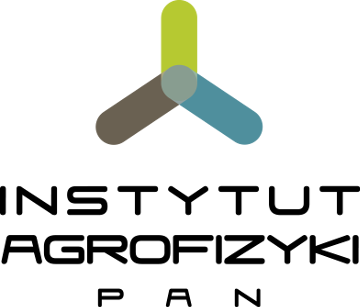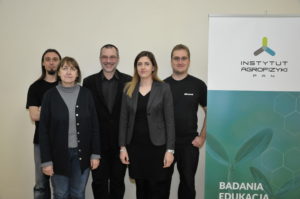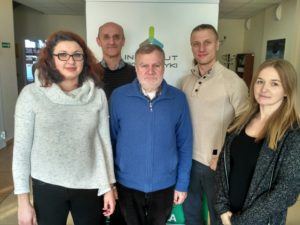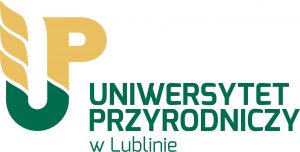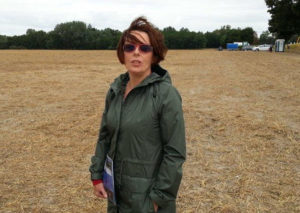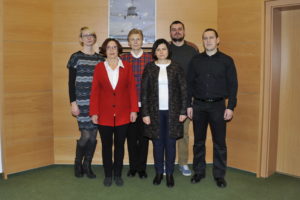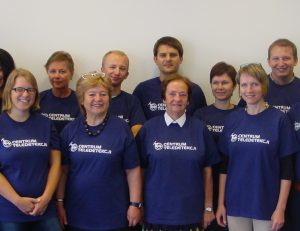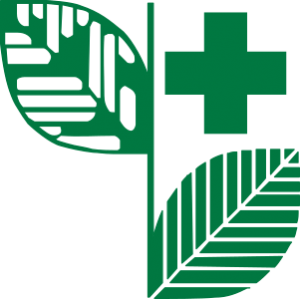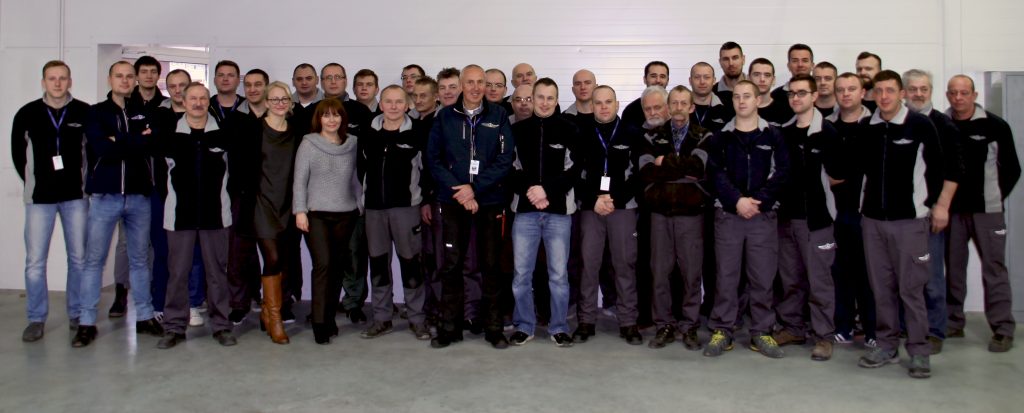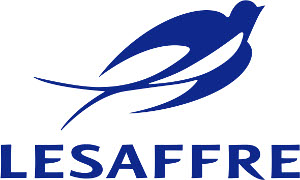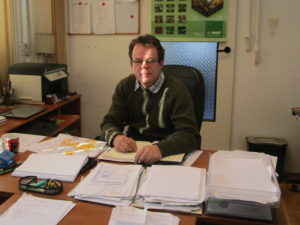Institute of Agrophysics (IA PAS) is a research institution of the Polish Academy of Sciences. It’s mission is: 1) Conducting interdisciplinary research and development for sustainable agriculture through application of physics, physicochemistry and biology; 2) Educating research staff for industry and science in order to make them capable of solving contemporary problems of agriculture; 3) Collaboration with researchers, industry and local authorities to ensure sustainable exploitation of agricultural resources, and therefore, contribute to regional and world-wide bio-economy.
The Institute of Agrophysics has modern infrastructure for R&D in agriculture. It is attractive place for project realization and personal career development. R&D is performed in 22 laboratories. Labs are distributed according to their profiles in 6 Departments.
In the frame of the project, IA PAS acts as Coordinator and actively participates in the implementation of the following work packages:
WP1:
- complicity in the ultimate specification of the hyperspectral system,
- complicity in the calibration and validation of the hyperspectral measuring system,
- purchase of the system to remote measurements of carbon dioxide and methane.
WP2:
- coordination of the work package,
- the ground measurements (field and laboratory): the soil condition and state of the plants will be investigated,
- processing of the raw aerial data to create high resolution maps.
WP3:
- coordination of the work package,
- the ground measurements (field and laboratory): the carbon dioxide and methane exchange in ecosystem (using dynamic closed chamber method) will be measured in the field, and potential emission of these two gases will be evaluated in laboratory,
- processing of the raw aerial GHG data to create high resolution maps.
WP5:
- processing of the raw aerial hyperspectral data to create high resolution maps.
WP6:
- analysis of meteorological parameters during crop growth seasons,
- analysis of various vegetation indices for description of vegetation growth during the season,
- agro-meteorological models : development for the observations carried out during the project.
WP7:
- preparation of data quality testing and procedures of data integration,
- incorporating models using hyperspectral indices and methods of mapping of plant and soil status into the DSS,
- modelling responses to changing plant growth conditions with recommendations for precision farming, creating documentation procedure of the grassland ecosystems degradation,
- elaboration and development of the decision support system (DSS).
WP8:
- co-organization of project workshops/seminars,
- participation in the preparation of a patent application,
- development and maintenance of the project website (in Polish and English).
Prof. dr hab. Małgorzata Bzowska–Bakalarz – Department of Agricultural Machines Theory
Role / Functions: President of the Project Board, senior expert
Tasks: WP1; WP4, WP 7, WP8
Responsibilities: allocates test fields with crop rotation for the whole timespan of the experiment; documents cultivation processes in test fields; selects and describes sampling areas for ground experiments, prepares flight plans for autogiro-mounted remote sensing system; plans and supervises tillage methods and timing of operations; records weather data; monitors phytosanitary condition of the crops (in cooperation with IOR); conducts phenologic studies of crops to define dates of ground-based aerial tests, crop protection operations, and plant sampling; co-operates in publishing project information and conducting market surveys to define consumers of project results.
Department of Grassland and Landscape Shaping, University of Life Sciences in Lublin
Implementing team:
- Prof. Marianna Warda – expert
- Dr. Mariusz Kulik – expert
- MSc. Marek Tatarczak – engineering and technical employee
WP5 – “Assessment of the state of meadow degradation”:
The research objective is to assess the state of grassland degradation based on the results of the floristic diversity inventory of grassland communities under conditions of abandonment or extensive use. The investigations will be carried out in the Natura 2000 area Dolina Środkowego Wieprza (Middle Wieprz River Valley, PLH060005), in the Nadwieprzański Landscape Park (Lubelskie Province). Furthermore, types of plant communities will be distinguished within the analysed meadows, taking into account the total number of species and characteristic of phytosociological units. The production potential (absolutely dry matter yield) of meadows will also be determined based on the green matter yield and dry matter content. In addition, chemical analysis of plant biomass (dry matter, general protein, fibre, ash and N, P, K, Ca and Mg macroelement content) will be made.
On-the-ground investigations will be confronted with data obtained form an analysis of the hyperspectral reflectance imagery recorded on-board of an ultralight gyroplane and from satellite images.
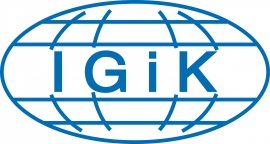 Institute of Geodesy and Cartography (IGiK) – Remote Sensing Centre, is involved in all eight WP and prof. dr hab. Katarzyna Dąbrowska-Zielińska is a manager of WP6. 9 people are involved in the project implementation.
Institute of Geodesy and Cartography (IGiK) – Remote Sensing Centre, is involved in all eight WP and prof. dr hab. Katarzyna Dąbrowska-Zielińska is a manager of WP6. 9 people are involved in the project implementation.
A description of work done by IGiK in the frame of particular WPs is presented below.
WP1 – IGiK participates in the specification of the hyperspectral system and in the calibration and validation of the hyperspectral measuring system.
WP2 – IGiK participates in the processing of aerial data to create high resolution maps and in field campaigns for collection of in-situ data for validation of aerial data and subsequent model calibration.
WP3 – IGiK participates in processing of the raw aerial GHG data to create high resolution maps and in ground measurements.
WP4 – IGIK participates in processing of the raw aerial data of phytrosanitary conditions to create high resolution maps.
WP5 – IGiK participates in processing of the raw aerial hyperspectral data to create high resolution maps and in field campaigns for collection of in-situ data for validation of aerial data and subsequent model calibration.
WP6 – IGiK is WP manager and participates in:
- coordination of the work package,
- analysis of meteorological parameters during crop growth seasons,
- analysis of various vegetation indices for description of vegetation growth during the season,
- agro-meteorological models development for the observations carried out during the project,
- integration of remote sensing data into modelling..
WP7 – IGiK participates in:
- preparation of data quality testing and procedures of data integration,
- incorporating models using hyperspectral indices and methods of mapping of plant and soil status into the DSS,
- modelling responses to changing plant growth conditions with recommendations for precision farming, creating documentation procedure of the meadow ecosystems degradation,
- elaboration and development of the decision support system (DSS).
WP8 – IGIK participates in co-organization of project workshops/seminars and in the preparation of a patent application.
The Institute of Plant Protection – National Research Institute (IOR-PIB) is a public research and development organization under the Polish Ministry of Agriculture and Rural Development. The mission of the Institute is to conduct research and implement solutions in the area of the development and modernization of crop protection in Poland. These activities are carried out to ensure food safety, limit losses in crop yield, and protect people and the environment from potential risks arising from the use of plant protection products.
In the project, the Institute of Plant Protection – National Research Institute is responsible for the realization of measure WP 4 task entitled: “Assessment of the phytosanitary quality of crops. Terrestrial and aerial research”. Activities under this measure are coordinated by the Regional Experimental Station IPP-NRI in Rzeszów and executed by the following units: Institute of Plant Protection – NRI in Poznań (Department of Mycology and Department of Pesticide Investigation), University of Life Sciences in Lublin, and the Institute of Geodesy and Cartography in Warsaw.
Under the project’s implementation the Institute of Plant Protection – NRI is carrying out research in southern Poland regarding the field assessment of the phytosanitary quality of winter wheat and corn, focusing on the occurrence of agrophages (weeds, diseases and pests), which is complemented by specialized analyses performed in mycological and entomological laboratories. Regular monitoring of the occurrence of the most important species in the growing season is carried out. This includes the assessment of the intensity of pest occurrence, the harmfulness and effectiveness of non-chemical and chemical methods limiting the number of some pests, and the analysis of the content of mycotoxins in grain dangerous for human and animal health. Terrestrial observations on the phytosanitary quality of crops will be supplemented (and also confronted with) observations performed from the air using a gyrocopter equipped with remote sensing devices.
The project team executing measure WP 4 at IOR – PIB includes the following members:
- Assoc. Prof. Paweł K. Bereś, Ph.D. – WP 4 Coordinator
- Prof. Marek Korbas
- Ewa Jajor, Ph.D.
- Joanna Horoszkiewicz-Janka, Ph.D.
- Łukasz Siekaniec, M.Sc.
- Jakub Danielewicz, M.Sc.
- Agnieszka Perek, M.Sc.
- Ilona Świerczyńska, M.Sc.
- Beata Danielewicz, M.Sc.
- Amelia Bednarek-Bartsch, M.Sc.
- Andrzej Krzymiński
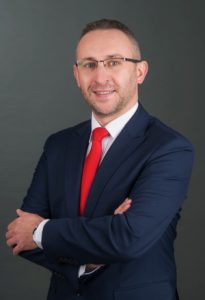
Assoc. Prof. Paweł K. Bereś, Ph.D.
(WP 4 Coordinator, member of the council of the consortium)
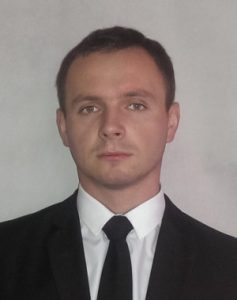
Łukasz Siekaniec, M.Sc.
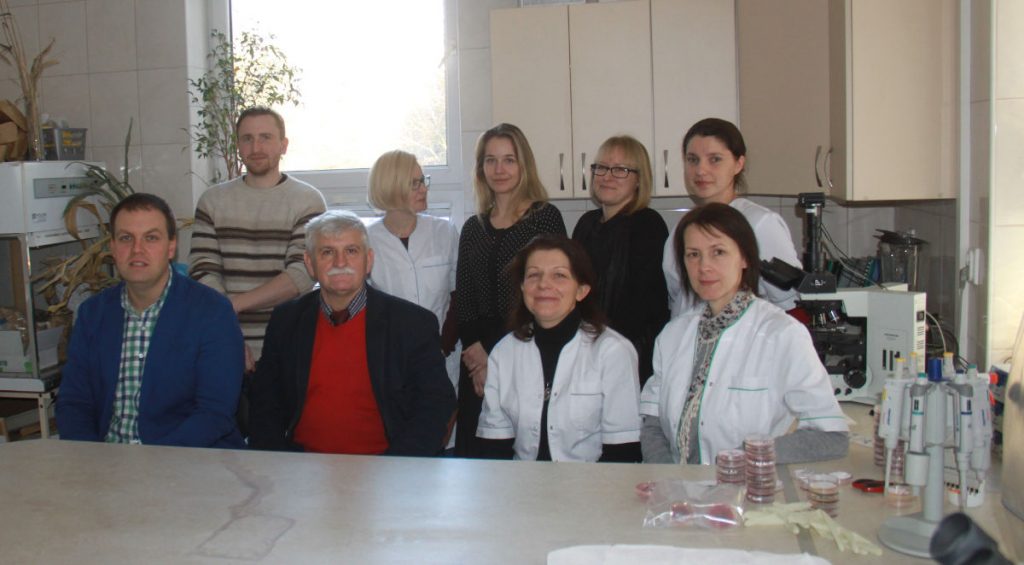
Bottom row from left: Jakub Danielewicz, M.Sc.; Prof. Marek Korbas; Ewa Jajor Ph.D. and Ilona Świerczyńska, M.Sc.
The top row from left: Jędrzej Krzymiński; Joanna Horoszkiewicz-Janka, Ph.D.; Amelia Bednarek – Bartsch, M.Sc.; Beata Danielewicz, M.Sc. and Agnieszka Perek, M.Sc.
GEOSYSTEMS Polska was established in June 1995. The company is one of Poland’s leading providers of geospatial solutions as well as technologies designed for data capturing, analyzing and presenting. The company conducts R&D projects and implement them in the field of remote sensing, photogrammetry and geographical information systems. We put our effort into promotion of geospatial methods and technologies among users from different disciplines (technical support, consultancy, workshops etc.).
GEOSYSTEMS Polska is involved in four WP and Przemysław Turos is a manager of WP1 and WP7. 4 people are involved in the project implementation.
Responsibilities of GEOSYSTEMS Polska in the project:
- coordination of process of definition of specification of components of the hyperspectral imaging system,
- selection of components of the system and support for market research,
- support of integration and calibration of the system and preparation for operation usage,
- participation in process of aerial and terrestrial data acquisition, processing and analysis,
- elaboration of assumptions and integration of decision support system for precision farming and standardisation of technologies,
- elaboration of baselines for commercialisation of the project achievements.
Team:
Witold Fedorowicz –Jackowski PhD, Przemysław Turos M.Sc.Eng., Agata Janowska M.Sc.Eng., Rafał Dąbrowski M.Sc.Eng.
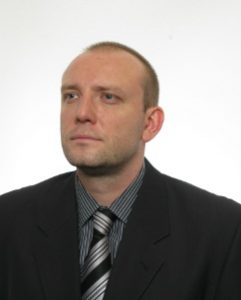
Przemysław Turos M.Sc.Eng
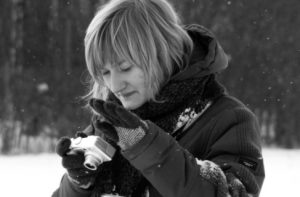
Agata Janowska M.Sc.Eng
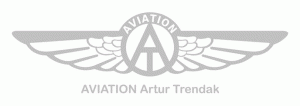 AVIATION Artur Trendak (AAT) company was founded in 2002. At the beginning, it acted in the auto industry. In 2006 new plant in Jaktorów started production of gyrocopters. By 2011 our company produced 4 models of gyrocopters: the most popular double seater Tercel and a unique on a world scale 3 seater Taurus. So far, by now, more than 240 different types of gyrocopters have left our factory . Teamwork is the basic operating principle of the company. AAT conducted many research projects, some of them subsidized from the European Union: ,,Research and development works of design of innovative aircraft weighing over 560 kilos”, ,,Modern automotive rotor”, ,,Innovative rotorcraft”. In The GyroScan project AAT company is responsible for constructing and adapting the gyrocopter to carry hyperspectral scaners and other testing equipment. Thanks to the AAT’s considerable experience concerning gyrocopter flights, the company provides perfect technical knowledge and service support of these machines.
AVIATION Artur Trendak (AAT) company was founded in 2002. At the beginning, it acted in the auto industry. In 2006 new plant in Jaktorów started production of gyrocopters. By 2011 our company produced 4 models of gyrocopters: the most popular double seater Tercel and a unique on a world scale 3 seater Taurus. So far, by now, more than 240 different types of gyrocopters have left our factory . Teamwork is the basic operating principle of the company. AAT conducted many research projects, some of them subsidized from the European Union: ,,Research and development works of design of innovative aircraft weighing over 560 kilos”, ,,Modern automotive rotor”, ,,Innovative rotorcraft”. In The GyroScan project AAT company is responsible for constructing and adapting the gyrocopter to carry hyperspectral scaners and other testing equipment. Thanks to the AAT’s considerable experience concerning gyrocopter flights, the company provides perfect technical knowledge and service support of these machines.
The company Lesaffre Polska SA has its seat in Wołczyn (voivodeship opolskie, poviat Kluczbork) where the yeast production plant and bread making ingredients manufacture are located. Since 2000 the company is part of the French group Lesaffre. One out of three loaves of bread in the World is baked with the use of Lesaffre yeast. Lesaffre Group is currently the leader of baking yeast production, compressed and liquid and bread making ingredients for bakery and confectioner’s trade. 160 years of tradition Lesafre and philosophy of management complying with sustainability development let Lesaffre to expand huge portfolio of international brands which are very well known in the sector and in many cases set the standards on the market.
The production process of our brands is based out according to the highest quality certificates: the Food Safety Certificate FSSC 22000 and the certificate of Environment Management System ISO 14001.
Participation in the project tasks : WP2, WP 8
Project participation : organization and maintenance of field experience in the cultivation of wheat and corn using, among other things fertilization wastewater from the production of yeast and fungicide with contain yeast bakery Saccharomyces cerevisiae. Lesaffre Poland is potential recipient of decision support system for precision farming in the future.
